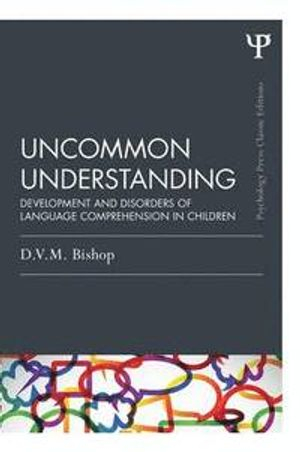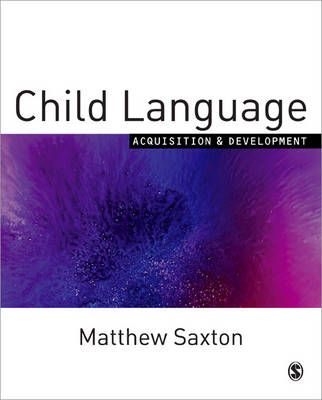

Uncommon Understanding (Classic Edition)
- Utgiven: 2013
- ISBN: 9781848721500
- Sidor: 350 st
- Förlag: Psychology Press Ltd
- Format: Häftad
- Språk: Engelska
Om boken
This is a Classic Edition of Dorothy Bishop's award-winning textbook on the development of language comprehension, which has been in print since 1997, and now includes a new introduction from the author. The book won the British Psychological Society book award in 1999, and is now widely seen as a classic in the field of developmental language disorders.
Uncommon Understanding provides a comprehensive account of the process of comprehension, from the reception of an acoustic signal, to the interpretation of communicative intentions, and integrates a vast field of research on language acquisition, psycholinguistics and neuropsychology. In the new introduction Dorothy Bishop reflects on the organization of the book, and developments in the field since the book was first published.
A major theme in the book is that comprehension should not be viewed as a unitary skill - to understand spoken language one needs the ability to classify incoming speech sounds, to relate them to a "mental lexicon," to interpret the propositions encoded by word order and grammatical inflections, and to use information from the environmental and social context to grasp an intended meaning. Another important theme is that although neuropsychological and experimental research on adult comprehension provides useful concepts and methods for assessing comprehension, it should be applied with caution, because a sequential, bottom-up information processing model of comprehension is ill-suited to the developmental context.
Although the main focus of the book is on research and theory, rather than practical matters of assessment and intervention, the theoretical framework presented in the book will continue to help clinicians develop a clearer understanding of what comprehension involves, and how different types of difficulty may be pin-pointed.
Åtkomstkoder och digitalt tilläggsmaterial garanteras inte med begagnade böcker
Mer om Uncommon Understanding (Classic Edition) (2013)
I juli 2013 släpptes boken Uncommon Understanding (Classic Edition) skriven av Dorothy V M Bishop. Den är skriven på engelska och består av 350 sidor. Förlaget bakom boken är Psychology Press Ltd.
Köp boken Uncommon Understanding (Classic Edition) på Studentapan och spara uppåt 53% jämfört med lägsta nypris hos bokhandeln.
Referera till Uncommon Understanding (Classic Edition)
Harvard
Bishop, D. V. M. (2013). Uncommon Understanding (Classic Edition). Psychology Press Ltd.
Oxford
Bishop, Dorothy V M, Uncommon Understanding (Classic Edition) (Psychology Press Ltd, 2013).
APA
Bishop, D. V. M. (2013). Uncommon Understanding (Classic Edition). Psychology Press Ltd.
Vancouver
Bishop DVM. Uncommon Understanding (Classic Edition). Psychology Press Ltd; 2013.



















